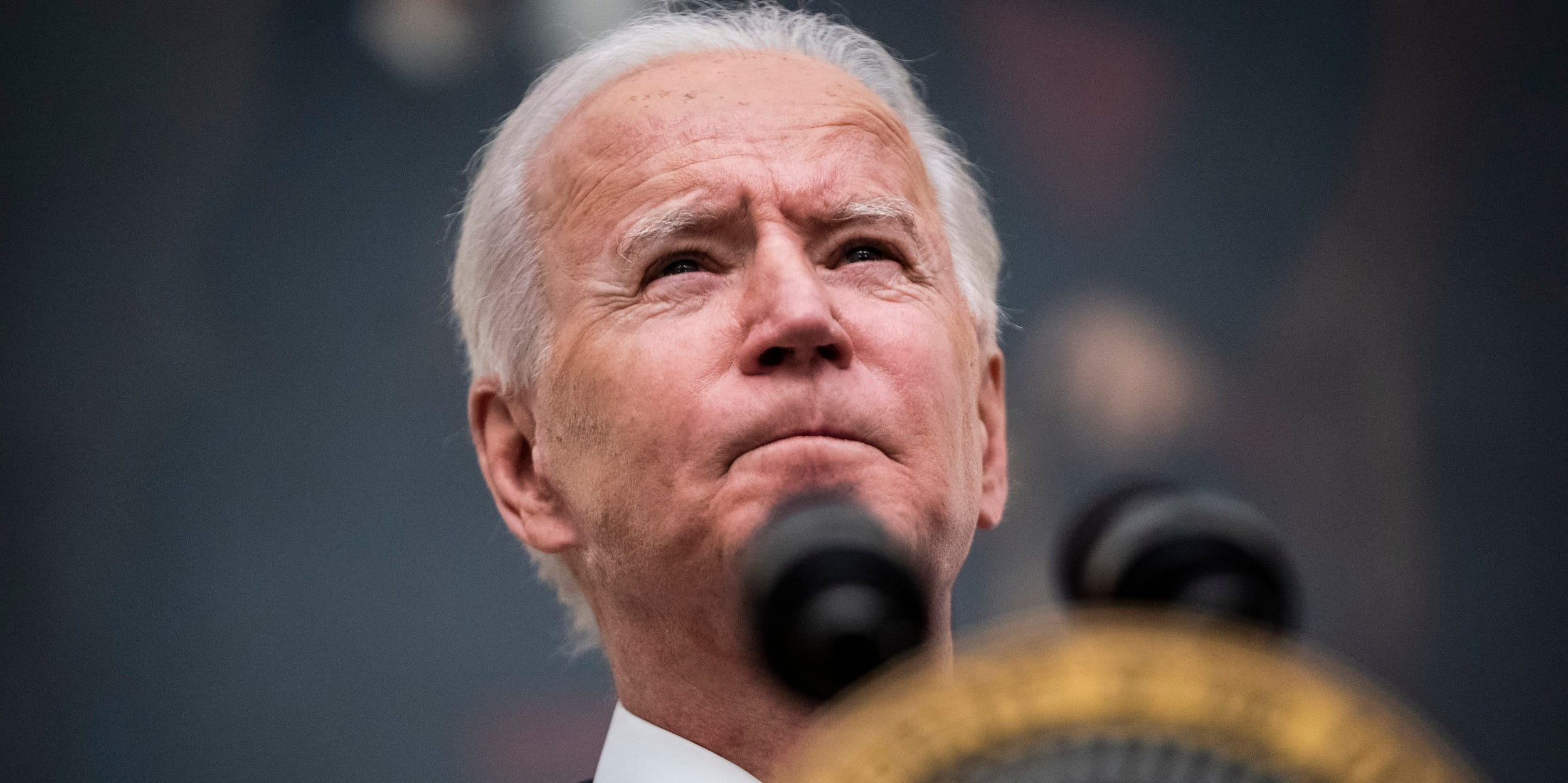
Jabin Botsford/The Washington Post via Getty Images
- The Biden administration’s first big push since taking office is a $1.9 trillion stimulus package.
- This new round of coronavirus relief is already facing political and logistical hurdles in Congress.
- Beyond Republican opposition, key Senate Democrats also need to be convinced.
- Visit Business Insider’s homepage for more stories.
With tight margins between the two parties in Congress, President Joe Biden is already confronting both political and logistical hurdles to his $1.9 trillion stimulus plan.
The new round of coronavirus relief may not get a vote until mid-March, when the $300 weekly unemployment assistance program expires, according to Punchbowl News.
Last week, Speaker Nancy Pelosi said the House will be ready to vote on the bill by the first week of February.
However, things get complicated once the focus turns to the Senate side. With the filibuster rule currently in place, the bill could get derailed unless the Democrats can get 10 Republicans to join them in closing debate and moving on with a vote on the bill, a process known as cloture.
Senate Minority Leader Mitch McConnnell holds substantial leverage over the process, given the 50-50 split and power sharing agreement between the two parties.
And two members of the Democratic caucus in the Senate might prevent the stimulus package from passing as its currently written.
Sen. Joe Manchin of West Virginia and Sen. Angus King of Maine have objected to certain aspects of the proposal, such as direct payments going to families making up to $300,000 per year.
As Insider's Joseph Zeballos-Roig reported last week, Manchin in particular will wield substantial influence over any major legislation pushed by Biden and the Democrats.
Manchin is a moderate who holds several positions at odds with the Democratic consensus, particularly when it comes to deficit spending and climate change. He supports the coal industry and has expressed skepticism over an overly broad use of direct payments.
There is a way for the Democrats to try and pass the bill without the 60 vote filibuster-proof majority, but Manchin once again stands in the way.
Instead of going down the conventional path, Democrats could use the budget reconciliation process, which would allow them to pass Biden's bill with just 51 votes. Theoretically, that could happen with no Republican support, with Vice President Kamala Harris coming in to break the tie.
Sen. Bernie Sanders, the new chairman of the budget committee, has advocated for using budget reconciliation on a variety of issues going back to his 2020 presidential campaign. Sanders once again called for it over the weekend, saying Democrats cannot "wait weeks and weeks" for GOP support.
White House Press Secretary Jen Psaki did not rule out budget reconciliation in one of her press briefings last week.
Yet budget reconciliation is not necessarily a faster way to pass the bill than getting 60 votes to clear the filibuster.
A so-called vote-a-rama comes with budget reconciliation, so instead of worrying about getting enough Republicans on board to avoid a filibuster, any Senator could propose an amendment to be tacked onto the bill. The last time this happened was in 2017, when more than 700 amendments were debated on the Trump tax cuts.
This time around, there could be more than 1,000, according to Punchbowl.
Once all of that is out of the way, multiple House and Senate committees would need to essentially rewrite the bill. The scope of the Biden stimulus plan would require more committees than usual to get involved in that process, which is normally dominated by the House Ways and Means Committee along with the Senate Finance Committee.
It's still early for the Biden administration, but a lot will need to go their way simultaneously for the stimulus package to land on the president's desk by February.
